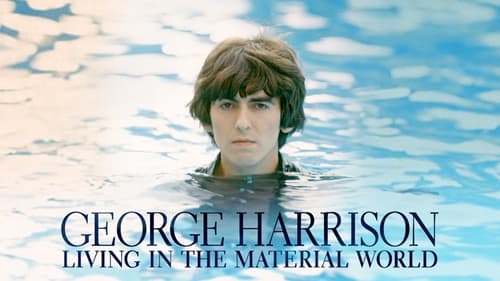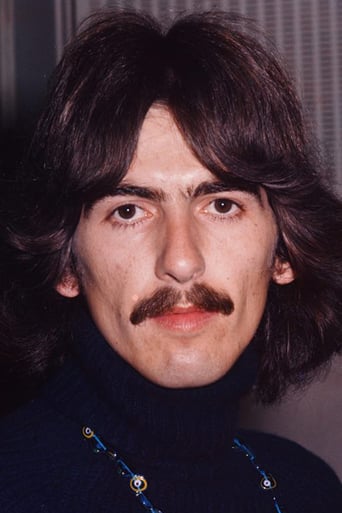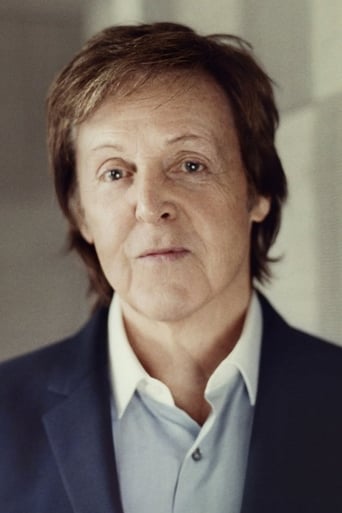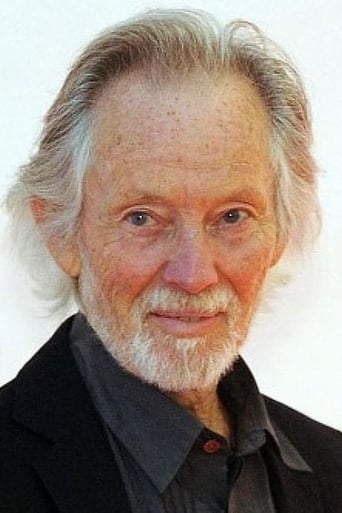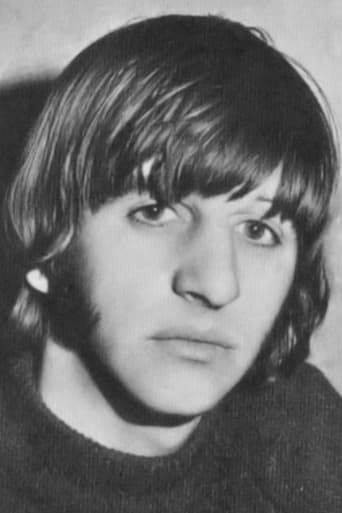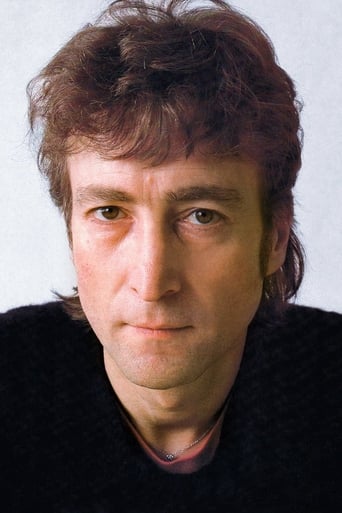Scanialara
You won't be disappointed!
Teringer
An Exercise In Nonsense
Salubfoto
It's an amazing and heartbreaking story.
Brenda
The plot isn't so bad, but the pace of storytelling is too slow which makes people bored. Certain moments are so obvious and unnecessary for the main plot. I would've fast-forwarded those moments if it was an online streaming. The ending looks like implying a sequel, not sure if this movie will get one
NikkoFranco
Loving the Beatles, loving George Harrison and his individual music and him as the separate artist from the Fab Four and loving Martin Scorsese and his method of directing is what this documentary sums up to me. There is such awe in watching old clips of George and the Fab Four sewn together with some never seen before footages to produce this special . But this also clearly shows that George , like many old school rocker is past the money and fame wagon but is more on to a higher ground of spiritual search for enlightenment. On a parallel level, the story about the evolution of the FF4 is also told, with recollections from Paul McCartney and Ringo Starr. Indeed in one part, the narration has focused on the lyrics of the song While My Guitar Gently Weeps, because for me it is a bullseye description of how the four of them must have felt for each other when they tried to pick up where they left., as I tried imagining being in their shoes countless times. There is no turning back and two of them FF4 are long gone. For documentaries, rock and roll nostalgia and legendary music lovers, this is a highly recommended watch.
dbdumonteil
The title is no misnomer.As George sang in the track from the eponymous album,"by the Lord Sri Krishna's grace (....) my salvation from the material world" .At the time many people laughed at Harrison whom they dismissed as unhip and holier-than-thou.Scorcese's movie is exactly what George would have wanted:a long and winding line of thought of an icon who,little by little ,ditched the material world :an adulated entertainer in the glorious years of the Beatles (to whom he contributed a good handful of classics) ,a peak of musical and spiritual inspiration with his mind-boggling " all things must pass" (which remains,along with "John Lennon/Plastic Ono Band" ,my favorite solo album).In the seventies ,it seems that George was not that interested in carrying on with a career which anyway was on the wane after "material world" ,his last number one .The concert for Bangla Desh was a grand gesture (and Bob Geldof's laurels actually belonged to the ex-Beatle),but the rest of it ,the 1974 tour,the infatuation with racing cars ,the homemade productions ,the Japanese tour,even the marvelous Traveling Wilburys, were minor events .George had warned us on the overlooked B side "the inner light" in the words he set to music on a college professor's request:"without looking out of my Windows ,I could know the ways of Heaven" .His final years were probably the happiest of his life ,with a marvelous wife ,Olivia ,who shared his way of life ,and a son to carry on.Two hundred years after Voltaire,like Zadig,he cultivated his garden while continuing his spiritual quest.His ultimate album,"brainwashed" ,lived up to its name:although terminally ill,the musician produced a cheerful album,full of serenity .More than thirty years after the song,he had learned the "art of dying" ;"I've never seen such a confident patient " a physician said .Like Scorcese's take on Dylan ("no way home" ) ,"living in the material world " is never off the point .Nothing sensational,nothing scandalous,but an absorbing portrayal of a man,who,after conquering the whole world,realized he could "arrive without traveling " and "see all without looking".
Robert J. Maxwell
It's a little hard to watch this if you've lived through the period when the Beatles were churning out one astonishingly well-done album after another because, after all, two of the four are dead now, and the remaining two are old. I expect it's difficult for younger fans of pop music to understand what a revolution the Beatles were part of. Only a few years after Lennon's death, I heard a youngster in a shop exclaim, "Oh, look, Paul McCartney was in a band BEFORE "Wings." Directed by Martin Scorsese, it's a four-hour long documentary with nothing more than talking heads (including McCartney and Star) and newsreel footage and video clips of the group itself. It's aimed at adults mainly, so there is no narration telling us in chronological detail of the rise and ultimate disintegration of the bad. Pete Best's name is mention, but only in passing, and only once, so you either know who he was or you skip it. The names of albums hardly crop up.The central figure, of course, is George Harrison, the third in line, in almost all respects. He was quiet rather than outrageous, and not a goofy clown like Ringo. He was hired because he was a good man on the guitar, the best of the three, and could write songs too. ("Because", for instance.) Someone slipped him LSD as a joke and it appears to have turned Harrison eastward. He became spiritual in the broadest since, learned to play a modest sitar under Pandit Ravi Shankar, and introduced a strain of mysticism into some of the albums ("Within You and Without You").It's not a gossipy fan-magazine story. You'll never find out here who was responsible for the jaw-dropping combing of the Beatles' long hair from backwards to forward. Instead, you'll get a feel for what it was like to perform for peanuts in the Kaiser Keller in Hamburg on the roughest street in town.I didn't think I'd be able to watch it because I try not to think about the Beatles too much these days. It reminds me of happier times, when there was splendor in their costumes and fun in their irreverent wisecracks. It's painful to put any effort into researching time lost. But I was caught up in this. The interviewees include just about everyone who has anything of importance to say, and what they say isn't just interesting but deserves to be part of the historical record, the chronicle of a moment in the evolution of vernacular culture that we're going to have to wait a while before we see again.
Weird_and_Proud1
Martin Scorsese has put together a beautiful documentary tracing the life of the most underrated member of the Beatle's, George Harrison. With a run time of over three and half hours, Scorsese is able to explore the various layers that went towards forming Harrison's absolute identity. Through the use of personal letters, pictures, home-videos, and never-before-seen interviews, the viewer is given the rare opportunity of discovering Harrison beyond The Beatles.The documentary is essentially divided into two parts, the first of which follows the formation and success of The Beatles. Whilst the second focuses on Harrisons spiritual journey to find meaning beyond the capitalist world he found himself trapped in.Through the careful selection and juxtaposition of archival footage and documents, Scorsese emphasises the bittersweet realities of The Beatles rise to fame. Unfolding the story of four naïve British lads torn between childish excitement at their growing success, and apprehension towards the zealous fan-base it gained them. This clash of ideals is exemplified by Harrison in a letter to his parents: "Dear Mum and Dad – The shows have been going great with everyone going potty…everywhere we go we have about 20 police on motorbikes escorting us".The fervent behaviour of the fans escalated to the point that all four Beatles decided it was best to avoid any public outings. Frustrated by the confinement fame had enforced on him, Harrison became disillusioned by the material world, and seemed to experience a displacement of the self. In an interview he stated: "you see yourself in the paper but don't actually realise it's you".This displacement of identity led Harrison to pursue a spiritual path in the hopes of attaining the meaning of life through philosophy. Under Guru Ravi Shankar, Harrison learned to use Indian spiritual music to become one with a greater philosophical being. His friendship with Ravi also led Harrison to fund and organise the first ever benefit concert: The Concert for Bangladesh, which raised funds for refugees from East Pakistan following the 1970 Bhola Cyclone.Scorsese also uses the documentary as a medium through which Harrisons song writing credentials can be measured against the Lennon/McCartney partnership. "George was a loner and had to work on his own" states George Martin (Producer of four of The Beatles original five albums).It was therefore inevitable that Harrison would get lost in the shadows of the superpower that was the Lenon/McCartney writing team. Scorsese traces the anatomy of Harrisons body of (solo) work, highlighting in particular their spiritual origins. Whilst Lennon/McCartney's work exemplified masterful popular music, Harrison's engaged with his spirituality, and search for meaning in life. Scorsese incorporation of Harrison's solo work in the documentary illustrates the importance it holds to understanding his psyche.Scorsese's documentary excels in exposing hidden dimensions of Harrisons life and personality; from his love triangle with Pattie Boyd, and Eric Clapton, to his financial funding of Monty Python. Bringing together a multitude of Harrisons professional and personal acquaintances (including Eric Clapton, Ringo Starr, Paul McCartney, Terry Gilliam, and Eric Idle), and artifacts from his personal archive, Scorsese creates a colourful mosaic capturing the diversity that constructed George Harrisons life, and personality.

